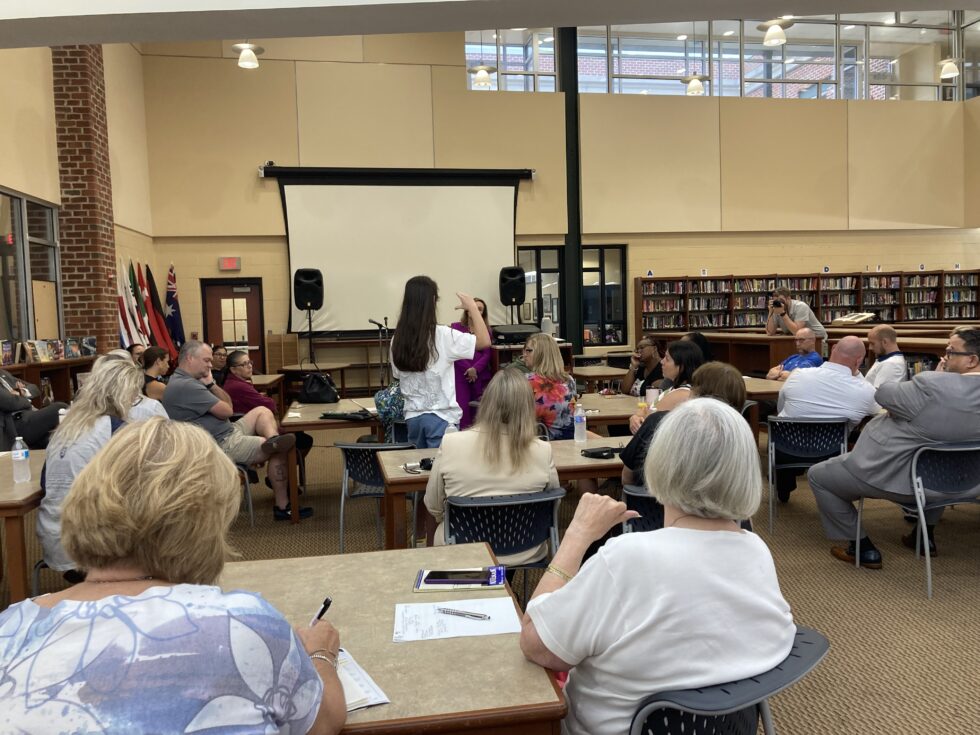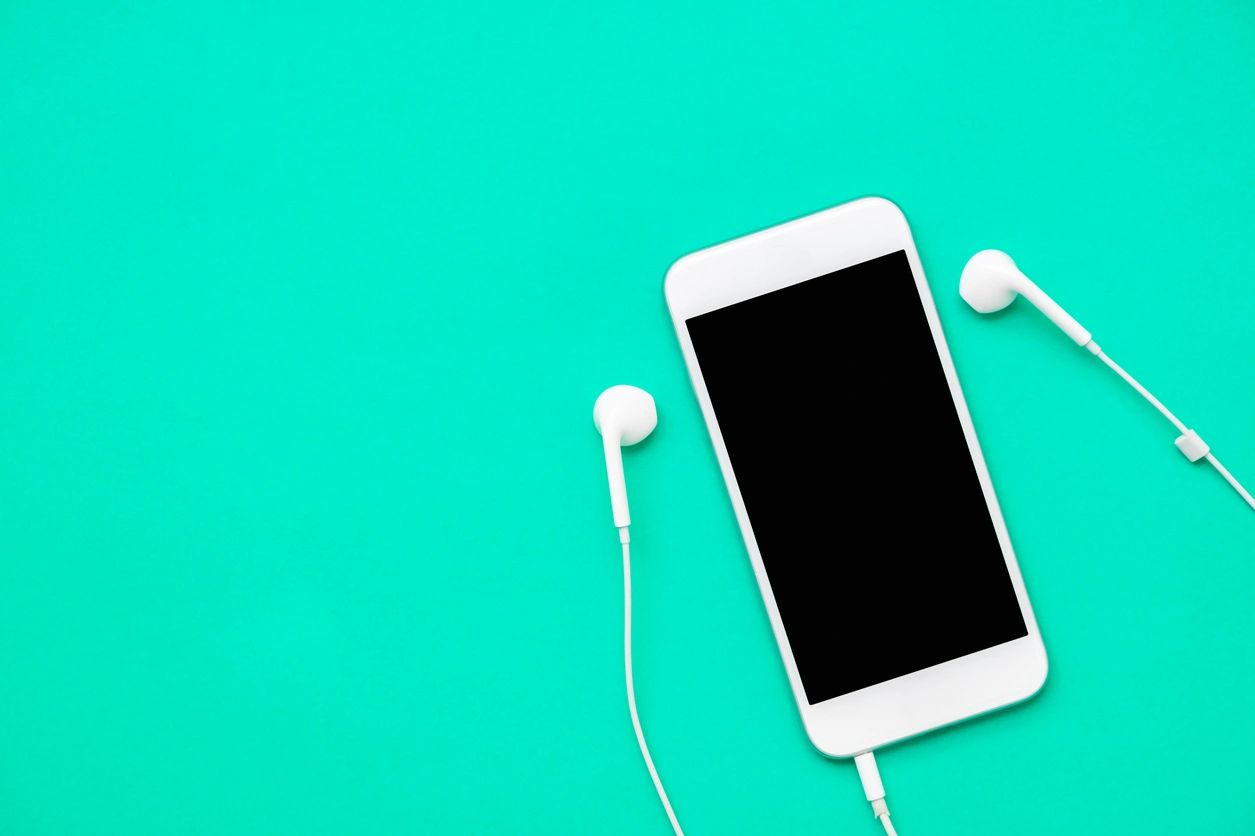
State superintendent of public instruction holds “Commonwealth Conversation” on the topic at James Monroe High School.
Not everyone who attended Tuesday morning’s conversation on “Cell Phone-Free Education” was convinced that public schools should be cell phone-free.
But Lisa Coons, Virginia’s superintendent for public education, reiterated several times that the purpose of the event was to “define what cell phone-free education looks like.”
The session, held at James Monroe High School, was one of a series of “Commonwealth Conversations” held by the Virginia Department of Education in the wake of Gov. Glenn Youngkin’s Executive Order 33, issued earlier this month, which “establishes cell phone-free education to promote the health and safety of Virginia’s K-12 students.”
The order cites findings published by the American Psychological Association this spring showing that children spend an average of almost five hours a day on social media—and that spending more than three hours per day doubles the risk of poor mental health for adolescents.
The order directs the VDOE to publish guidance for school boards on cell phone-free education policies and procedures. Coons said this guidance will be published on August 15.
School boards are supposed to establish local policies and procedures by the end of this year for implementation in 2025.
The superintendents of King George, Spotsylvania, and Fredericksburg City schools were present on Tuesday morning, as were School Board members from Spotsylvania and Fredericksburg, and teachers and parents from across the area.
Coons asked participants for ideas of what cell phone-free education should look like at the middle school and high school level. Should phone use be prohibited from the start through the end of the academic day, or should students be able to access their devices at certain times during the day?
The teachers who spoke all said that policing student cell phone use is a daily struggle that is exhausting for them, and that they support prohibiting phone use for the entire school day.
“I can either be a phone cop, or I can be a teacher,” one educator said.
Another, a 16-year teacher in Stafford, said her students are “so addicted [to their phones] that I worry for my safety,” and another, who started as a teacher and is now a principal, described cell phones as “small monsters” that constantly disrupt learning.
“Everything now is an emergency,” he said. “Ten years ago, where were these emergencies?”
Some parents also said they support a blanket restriction on phone use “from bell to bell” in both middle and high school to promote in-person interaction, create a better learning environment, and support teachers.
Other parents said there are students with familial responsibilities and jobs who need access to their phones during the day, or those who need devices for translation purposes, medical reasons, or as part of their individualized education plan.
Jaimie Ashton, a parent and advocate for special education, said that if all phones are banned with exceptions for those with special needs, “you have just ostracized those kids from their peers.”
Other parents and guardians said they worry about how students will get in touch with home in the case of an active shooter or other emergency. Others said schools should teach and model responsible device use rather than implementing a ban.
One teen who attended, a rising 10th grader, said students should be given the responsibility of choice.
“We’ve grown up with cell phones,” he said. “We have always had them. To say, ‘You cannot use your cell phone ever’ takes away choice.”
Mark Wright, theater teacher at James Monroe High School, said he recognizes that the issue of student cell phone use is complex, but that schools “have to try something.”
“If the school system doesn’t do anything, we get blamed. So, let’s try [a cell phone-free school],” he said.
Wright said it upsets him when there are kids in the classroom who are ready to learn, but he has to spend time policing other kids who won’t put away their devices.
“I watch the light in those kids’ faces just go out,” he said. “So I’m looking forward to just trying something.”
By Adele Uphaus
MANAGING EDITOR & CORRESPONDENT
Email Adele





